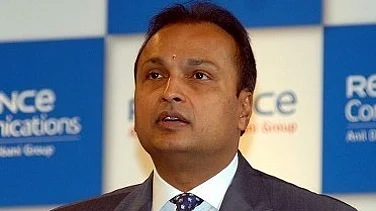Budget 2023-24 would probably be the most challenging one that Finance Minister Nirmala Sitharaman would be tabling on February 1, 2023. The upcoming budget would not only have to lay the roadmap for India’s growth momentum at a time when most of the world is staring at recession, it is also crucial because it would be Centre’s last full year Budget ahead of the Lok Sabha elections in 2024.
From corporate to the common man, everyone looks forward to the budget every year expecting reliefs and reforms that would benefit them. As election year approaches, the government would be keen to keep up the infrastructure push that it has followed as a policy decision, to spur growth. However, there has hardly been any tax relief for the middle class, the segment that drives consumption, for a while now.
While what the government decides finally would be only public on February 1, but there are a host of things that this budget is expected to address.
Capital Gains Tax Regime
Before every budget, there’s noise on changes in capital gains tax regime. This year too it has been reported that the Centre is looking to bring about changes in the capital gains tax regime to make it simpler. The Budget is expected to focus on the rationalisation of the holding period of the capital gains tax regime as well as change tax rates.
Former revenue secretary Tarun Bajaj said that the capital gains tax regime is complicated and a cleanup has been long overdue. The capital gains tax rates vary depending on the type of asset and period of holding, which makes the regime complicated. The holding period decides whether the profit would be taxed as long-term capital gains (LTCG) or short-term capital gains (STCG). However, the tax rates vary even within the same asset class.
Tax experts have opined that the holding period of financial products debts, funds, gold ETF, and bonds need to be reduced to 24 months from 36 months, while for assets like buildings and land, the holding period should be increased in order to discourage speculative transactions.
Spurring Growth
The biggest challenge facing the government right now is how to fasten the pace of country’s economic growth rate. Inflation has been a consistent problem for long now. India’s retail inflation slowed down to 11-month low of 5.88 per cent in November from 6.77 per cent in the previous month. Since December last year, this was the first time that retail inflation came below the Reserve Bank of India's (RBI) tolerance level of 6 per cent.
Boosting growth, while controlling inflation, is the biggest economic challenge for any country. If there is no growth, there wouldn’t be enough consumption, but increased consumption also leads to increase in inflation. The RBI has been addressing this conundrum by keeping a high interest rate regime. But high interest rates prohibit investment and growth. The Indian economy grew 8.7 per cent in financial year 2021-22. GDP growth for the July-September quarter of FY2022-23 came in at 6.3 per cent, slowing from slowed from 8.4 per cent expansion in the year-ago period.
Fiscal Deficit In Check
For the first six months of the ongoing financial year, India's fiscal deficit stood at Rs 6.20 lakh crore, or 37.3 per cent of annual estimates, widening from 35 per cent reported in the comparable year-ago period. On account of major subsidies on petroleum, food, and fertilizers, the government spent close to Rs 2 lakh crore, 63 per cent of the annual budget aim. But on account of subsidy expenditure, the government is expected to incur an additional outgo of Rs 3 lakh crore, adding to the fiscal pressure.
In a year before general elections, one of the biggest challenges for government would be to curtail costs, especially in a slowing economy. The government’s expenditure policy this financial year focused on revenue rationalisation and asset creation. It has maintained that it would adhere to its budget target of narrowing the deficit gap to 6.4 per cent of gross domestic product from 6.7 per cent in the last financial year.
Income Tax Structure
Tax experts feel that the income tax structure needs to be changed. Deloitte India has suggested that the 30 per cent highest tax slab should be lowered to 25 per cent and also suggested that the highest tax slab’s threshold limit should be increased from Rs 10 lakh to Rs 20 lakh.
"The current limit (investments under 80C) of Rs 1.5 lakh seems quite low. With the increase in cost of living and inflation, the government should look at increasing the limit. This will have two-fold benefits, viz., individual taxpayers would be willing to save more and will benefit from a lower tax outgo, thereby increasing disposable income to meet the increase in price of various commodities," Deloitte said in a report.
Consumption has taken a major hit post Covid. Rising expenses and no commensurate increase in salary has hardly left the middle class with anything to spend. Private final consumption expenditure (PFCE), a proxy for household and private sector consumption, showed recovery in the July-September quarter of the ongoing financial year and stood at 61.6 per cent of nominal GDP compared to 59.5 per cent a year ago and 61.1 per cent in the quarter ago.
However, experts feel that PFCE is yet to witness a broad-based recovery since the current consumption demand is primarily due to goods and services that are consumed by families in the upper-income bracket. For the middle class to spend and consume in a slowing economy, purchasing power of individuals have to improve and that is possible only through tax relief.
But giving up on tax revenue in a slowing economy would also mean that the government’s coffers would have to take a hit. The budget would be crucial for finding out how the finance minister plans to boost the middle class’s consumption.































